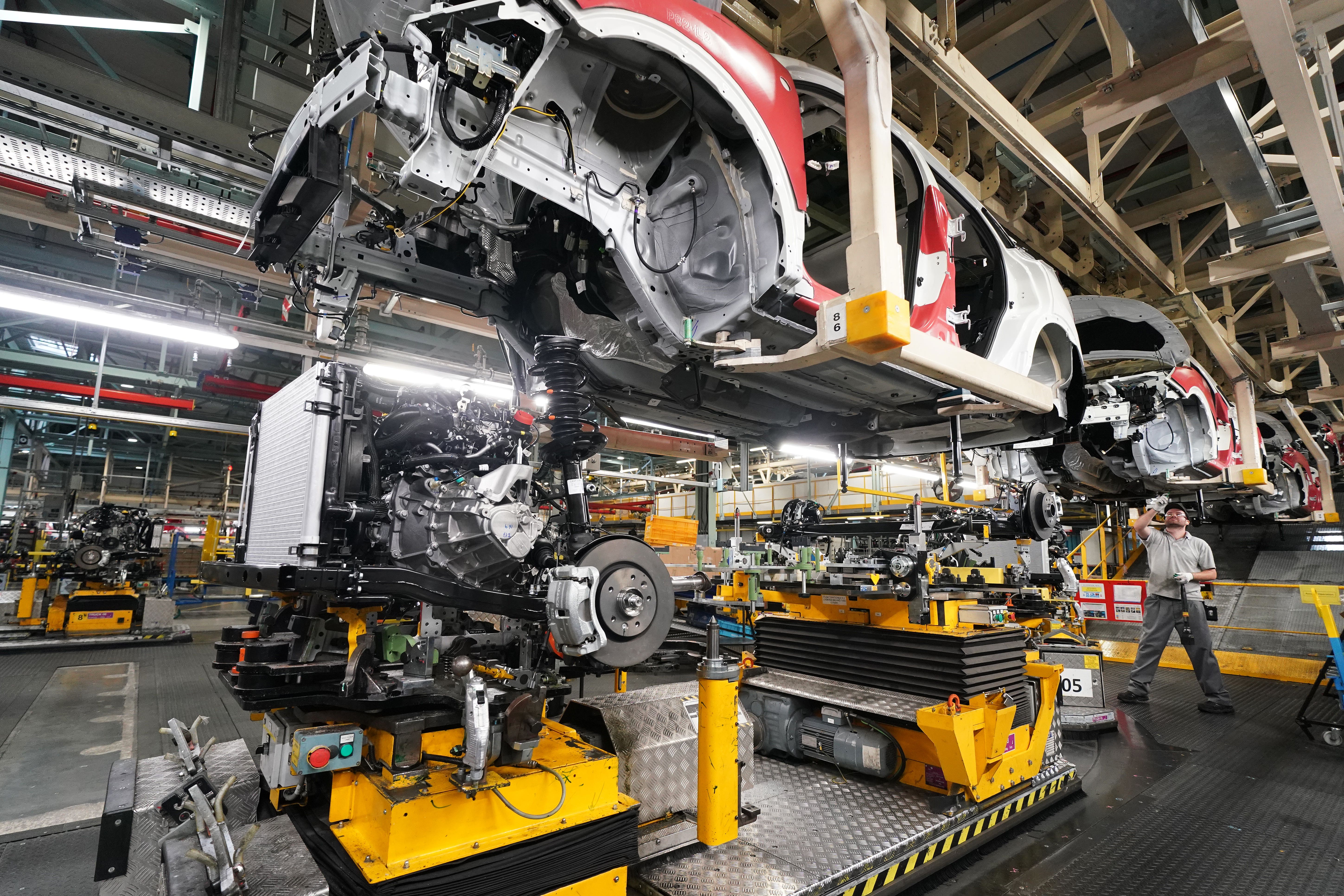UK manufacturing downturn worsens as economic concerns grow, survey suggests
New data showed production declined in November due to weaker demand from clients at home and overseas.

The UK’s manufacturing downturn worsened last month with activity falling to a nine-month low, as firms faced less demand and cutbacks as concerns grow over the economic outlook, according to new data.
The S&P Global UK manufacturing PMI survey, watched closely by economists, recorded a reading of 48.0 in November, down from 49.9 in October.
It marks a lower score than previous estimates, and the second consecutive month of contraction.
Any reading above 50 indicates that activity is growing, while any score below means it is contracting.
Supply chain worries have intensified as the combination of the Red Sea crisis, port disruptions and border regulation issues led to longer supplier delivery times, input shortages and rising costs. Input price inflation accelerated as a result
The survey showed production declined in November due to weaker demand from clients at home and overseas.
Manufacturers also reported getting fewer orders from customers who were delaying investment decisions, or making cutbacks to new projects due to uncertainty in the UK market and rising geopolitical tensions.
Some firms said announcements in the UK’s autumn Budget had led to budgets being reassessed at manufacturers and their clients.
The Government used the Budget to lay out plans for £40 billion worth of tax rises next year, including raising the rate of employer national insurance from April.
Manufacturers are left facing an environment of high costs, low demand and raised uncertainty for the foreseeable future
Rob Dobson, director at S&P Global Market Intelligence, said conditions for manufacturers “deteriorated” in November, while the “export market also remained bleak, as weaker demand from the US, China and EU led to a further drop in new export business”.
He said companies of all sizes were experiencing a downturn, but smaller firms were the hardest hit with the sharpest fall in demand.
“Meanwhile, supply chain worries have intensified as the combination of the Red Sea crisis, port disruptions and border regulation issues led to longer supplier delivery times, input shortages and rising costs,” he said.
“Input price inflation accelerated as a result.
“With recent budget announcements on labour costs and employer national insurance likely to raise costs further in 2025, and geopolitical tensions heating up notably around the threat of increased global protectionism, manufacturers are left facing an environment of high costs, low demand and raised uncertainty for the foreseeable future.”
There are good reasons to believe global growth will continue at a decent pace into 2025
Matt Swannell, chief economic adviser to the EY Item Club, said the latest data showed “uncertainty following the UK Budget and US presidential election, as well wider geopolitical tensions, weighed on investment decisions”, but said there “appears to be scope for some improvement”.
“There are good reasons to believe global growth will continue at a decent pace into 2025,” he said.
“Closer to home, healthy real incomes, alongside a reduced level of caution among consumers and lower interest rates, may support producers of consumer goods.”
Bookmark popover
Removed from bookmarks